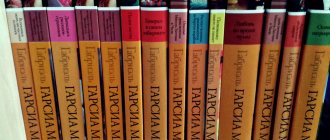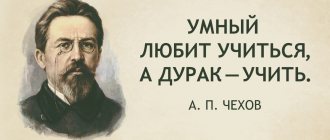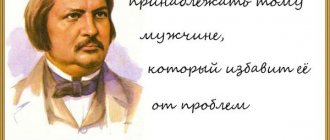| Louis-Gabriel-Ambroise Bonald | |
| Louis-Gabriel-Ambroise de Bonald | |
| Date of Birth: | 2 October 1754(1754-10-02) |
| Place of Birth: | Millau, France |
| Date of death: | November 23, 1840(1840-11-23) (age 86) |
| A place of death: | Millau, France |
| School/tradition: | traditionalism |
| Awards: | |
Louis Gabriel Ambroise Bonald
[1] (French
Louis-Gabriel-Ambroise de Bonald
; October 2, 1754, Millau, - November 23, 1840, ibid.) - French philosopher, founder of traditionalism, active politician of the Restoration period.
Biography
Bonald was born in Le Monnat into a noble family, received a classical education, and serves in a company of musketeers. He began his political activity in his hometown, where he was elected mayor in 1785. Initially he accepted the liberal theories prevailing in France, then he took the side of the old monarchy. Participated in the battles against revolutionary France in the troops of the Prince of Condé. In 1791 he was forced to emigrate abroad, where he hid for about eight years in the city of Heidelberg. There he wrote his first massive work, “The Theory of Political and Religious Power in Civil Society.” With this work, Bonald declared himself as an ardent critic of liberal ideas, defending the principles of royalism and clericalism, bringing the former to such a radical degree that allowed his contemporaries to dub the author an ultra-royalist.
In 1799 he returned to France. Beginning in 1800, he wrote a trilogy in which he consistently defended traditionalist views. Thus, in 1800, Bonald completed the work “An Attempt to Analyze the Natural Laws of Social Structure,” and in 1801 and 1802 he put an end to the works “On Divorce” and “The Laws of Primitive Society, Considered in Recent Times by the Light of Reason alone,” respectively. With Napoleon coming to power, Bonald became a supporter of his course, seeing strong power as a tool for uniting Europe. However, then he becomes disappointed and goes over to the side of the monarchists. Collaborates with the newspaper Mercure de France.
With the restoration of the Bourbons in 1814, Bonald began a new round of political activity. He becomes a member of the Chamber of Deputies, in which, thanks to his fiery speeches, he becomes the leader of the ultra-royalists. From 1816 he became a member of the French Academy, and in 1821 and 1823 he was elevated to viscounts and peers, respectively. The revolution of 1830 put an end to Bonald's political career: he was expelled from the House of Peers. Bonald lived another ten years in seclusion in his hometown, where he died on November 23, 1840.
His son Louis-Jacques-Maurice (1787-1870) became a cardinal of France[2].
Bonald Louis Gabriel Ambroise
Bonald, Louis Gabriel Ambroise, Viscount de, French reactionary publicist, was born in 1753, studied with the Oratorians, served in the musketeers in his youth, and then lived in the provinces until the revolution, completely untouched by the pre-revolutionary social upsurge that was spreading in society freethinking. It was at this time that he developed into that amazingly consistent and straightforward person that he remained in the history of French social thought. Back in 1790, he was elected a member of the departmental council, but emigrated soon after. Napoleon reconciled him with the revolution. Under the empire, he returned, held various positions, during the restoration he was first a deputy, then a peer, and survived the July Revolution. Died in 1840. Of his works, worthy of note are O (1796), “Législation primitive” (1802), “Du divorce” (1801), “Recherches philosophiques” (1818). Bonald's ideas are pure reactionary ecstasy. The beginning of the 19th century was rich in publicists who rose up in defense of antiquity. But neither Joseph de Maistre, nor Haller, nor Hell. Müller, nor Friedr. The Schlegels never agreed to the things that Bonald agreed to. Medieval ascetics were softer and more moderate in their demands on sinful people than Bonald. He denied everything modern: the constitution, literature, industry. As a member of the departmental council, he rebelled against the construction of a new road, not for any practical reasons, but out of principle. He was ready to consider the telegraph, credit institutions, even cities to be fabrications of the devil. Of course, he was an enemy of civil marriage, fought in every way against the legalization of divorce, considered censorship an institution pleasing to God, and demanded once and for all to “cleanse” the publication of classics in accordance with the requirements of the church and state. He did not accept compromises, he went to the end in everything, not stopping at any absurdities. Authority was his head's dogma. He demanded that everyone and everything submit to authority. A dry doctrinaire, he did not see that even his contemporary reality was outgrowing his callous reactionary theories. A real ichthyosaur, lost in the 19th century and rushing at everything that was not similar to the landscape and customs of antediluvian times.
Bonald's influence was small. His books and pamphlets are written in an extremely unliterary manner - by the way, one of the reasons why they did not find distribution in wide circles of society. But the feudal class that dominated during the restoration looked to Bonald as their prophet. The time was such when cynicism did everything to cover itself with the cloak of fanaticism, and practical businessmen were looking for ideologists to whom they could refer to justify their reactionary experiments.
A. Dzhivelegov
Philosophical and political views
Bonald draws his theory of ideas from Condillac and Malebranche, treating ideas as divinely given and known to everyone, but clouded in consciousness, capable of being clarified with the help of education. One of these initially given ideas is the idea of society. The state, according to Bonald, is the highest statement of the idea of society; it is located between God and the people, as language is a mediator between the idea and the spirit. Language itself acts as a transcendent expression of God, his instrument for self-revelation.
Power, Bonald believes, is effective only when it is perceived and understood as something higher in relation to people. If the social state is perceived as the result of a general agreement, which liberal thought insists on, then the idea of an extra-social state can also be the result of the general will, hence, the philosopher concludes, the danger from liberal ideas, which essentially lead to the potential for the destruction of society. For Bonald, a particular danger is posed by the liberal individualization of man, his isolation from a necessary social role, which also leads to the breakdown of the state. It is worth especially noting Bonald's position on the issue of the need for Divine administration. The idea of the state, the philosopher believes, is necessary, but God still leaves man a certain freedom, which cannot essentially change anything, but can significantly suspend the necessary, providentially given, historical process. And this is the harm and evil of this human will, for it is the more useful the less it manifests itself, agreeing with the necessary process of history.
Society is transcendental for the individual, therefore he cannot draw any essential conclusions regarding his origin of role and function. “If others defended the religion of man, I defend the religion of society,” wrote Bonald in defense of the Divine idea of society. Society is pre-individual and above the individual. The role and place of a person is dictated to him by society, he exists through society and for society, society acts as a certain highest creative element that constantly produces this person. Society, Bonald believed, is in constant motion, eternally and for centuries given by the process of natural constitution of itself.
Bonald views the state as an organism, with its own complex, incomprehensible dynamics. The State draws its strength from the past, from the energy of tradition. The traditions of the people rest on prejudices, a necessary material for any future. The essence of Bonald's criticism of the Great French Revolution lies in the inadmissibility of trampling on these same prejudices, the impossibility, on the one hand, of achieving a tabula rasa, and, on the other hand, of building something from scratch.
The foundation of society can only be religion (Bonald always means Christianity). So, in addition to his social origin, a person also owes his existence to a predetermined existence. Bonald views freedom in two ways: on the one hand, a person is free physically, on the other, religiously. In other words, a person gains freedom in his body and in God. But this dual freedom is always something inherent only in society; it is civil. Man, therefore, can only be free in society.
Conservative views of Louis de Bonald
Bonald Louis Gabriel Ambroise (1754-1840) - French politician and publicist, idealist philosopher. In his main work, “The Theory of Political and Religious Power in Civil Society” (1796), from the position of conservative Catholicism, he polemicized with the philosophy of the French Enlightenment; defended the idea of the divine origin of the monarchy. Bonald's views were called "traditionalism." 1
During the Revolution, he openly acted as a defender of the old monarchy, as a result of which he had to flee France and fought in the army of Condé. During the empire he returned and soon fell into favor with the Bonaparte family and in 1808 received an appointment at the Ministry of Public Education. Upon the restoration of the Bourbons, he entered the Chamber of Deputies, in which he belonged to the Ultramontane party, becoming, due to his outstanding intelligence and knowledge, one of its leaders. In 1816 he was elected to the Academy, and in 1823 he was appointed a peer. After the July Revolution, he refused to swear allegiance to the new dynasty, retired to his castle in Muna and died there on November 23, 1840.2
In 1796 he published the work The Theory of Political and Religious Power in Civil Society (Theorie du pouvoir politique et religieux dans la societe civile), in which he developed the ideas of royalism and clericalism (sometimes his position is called ultra-royalist). In 1799 he returned to France, to Paris, where he wrote the trilogy Experience in the Analysis of Natural Laws of Social Structure (Essai analytique sur les lois naturelles de l'ordre social, 1800); About divorce (Du divorce, 1801); The laws of primitive society, considered in recent times with the help of the light of reason alone (Legislation primitive consideree dans les derniers temps par les seules lumieres de la raison, 1802).3
Bonald's philosophical views, his ideas about knowledge and language were formed under the influence of Condillac and Malebranche. A proponent of the concept of innate ideas, he believed that ideas, like language, are ultimately of divine origin. He saw language as an instrument through which God reveals eternal ideas and himself to the human mind. Education does not create new ideas, but clarifies those ideas that a person initially possesses. Just as language is a mediator between ideas and spirit, so legal authority is a mediator between God and the people. Legitimate power is the one that is based not on a social contract and the idea of national sovereignty, but on divine decree and traditions.
Bonald's social philosophy is based on criticism of the ideas of the French Revolution. The idea of a people-sovereign, he believed, is a delusion with disastrous consequences; it testifies to the revolt of passions against reason, to the triumph of empiricism, which reduces to a contract what is in fact the expression of the divine Word; politically, it inevitably gives rise to conflicts, since it ascribes to individuals the power that belongs only to God; finally, as the experience of the revolution testifies, contrary to the slogans proclaimed at the beginning, it leads to the subordination of individuals to the supreme power. According to Bonald, the destructive force of revolution is opposed by a system of traditions; the foundations of social order are religion, absolute monarchy, patriarchal family.
Louis de Bonald (1754 - 1840) went down in history as one of the founders of French traditionalism4, as one of the main figures of the right and ultra-right movements in France in the first third of the nineteenth century5. He wrote several books, many articles and pamphlets in which he extolled the monarchy and the Catholic religion. At the same time, he was also a very prominent political figure, actively participating in the political life of the country throughout almost his entire long life (1754 - 1840).
Viscount Louis de Bonald came from a family of provincial nobles. The revolution found him as mayor of the small town of Millau. On the eve of the Revolution, Bonald actively advocated the return of traditional local governments. In the early years of the Revolution - until the beginning of 1791 - Bonald, as first mayor of Millau and then chairman of the Council of the newly created department of Aveyron, served the new government. However, the adoption of the Civil Order by the clergy changed Bonald's attitude towards the government: he left his homeland, and for him, like for many of his compatriots, a period of emigration began. Far from his homeland, Bonald did not cease to be interested in political events in France. Already in 1796, he sent his first book, “The Theory of Political and Religious Power in Civil Society,” to Paris in a small edition. The following year, Bonald himself returned to his homeland, and soon began his ascent to the status of a famous public figure. Under Napoleon, Bonald published several major theoretical works one after another. At the same time, he was actively involved in journalism, and by the end of the reign of Napoleon Bonaparte he received a seat on the University Council. On the return of the Bourbons he became one of the leaders of the ultra-royalist movement in the Chamber of Deputies and was still active.
On the eve of the Revolution, Bonald championed class representative institutions at the local government level, advocating the return of the provincial states system. He welcomed the first steps of the Revolution, expressing approval of the actions of the central authorities and participating in the work of the Assembly of his department. The main reason that Bonald refused to further serve the Revolution was the adoption of the Civil Order of the clergy. Having seen with his own eyes the weakening of the power of the king and the authority of religion, Bonald began to create a doctrine that refutes such postulates of Enlightenment philosophy as the independence of the human mind and the contractual origin of power. He intended to theoretically substantiate the need to recreate the traditional foundations of the state and society: class hierarchy, strong royal power and state religion. During the years of the Empire, despite the restrictions associated with the regime of the sole power of Napoleon I, Bonald took a very active public position. During this period, he mainly called for the rejection of what he considered to be the harmful legacy of the Enlightenment and the Revolution. Bonald's activities focused on journalism, especially in two areas. The first was literary criticism, which aimed to defend and promote moral values. The second is active support for the foreign policy of Napoleon I, marked by the hope of reviving the leading position of the French monarchy in Europe.
During the Restoration and in the first years of the July Monarchy, Bonald joined the ultra-royalists, who waged a stubborn struggle against the liberals. Bonald the publicist showed himself to be a harsh critic of both the liberals and the government. The ultra-right cabinets of Charles X also did not meet with his unconditional support. Bonald continued to adhere to the line he had defined since the days of the Empire. He struggled with the spiritual heritage of the Enlightenment and the Revolution and with those who, as it seemed to him, were protecting him - the liberals. Patriotic themes, which partly fit into the ideology of the Holy Alliance, retained an important place in his views. In parliament, Bonald spoke primarily on three issues: electoral legislation, freedom of the press and problems of religion. In the controversy surrounding electoral legislation, Bonald insisted on a partial restoration of the class organization of political life. Based on the idea of a property qualification defined by the Charter, he sought to give the stratum of large landowners a dominant role in the political life of the country. With regard to freedom of speech, Bonald also followed the line he had already developed during the Empire. He was convinced of the need for censorship, which he considered a natural mechanism for regulating public life. The established idea that Bonald “opposed the constitutional-parliamentary system”842 can be nuanced. It is important to note that, speaking in parliament and in the press during the Restoration period, Bonald emphasized respect for the Charter of 1814, but sought to interpret its provisions in his favor. In matters of religion, Bonald showed himself to be in favor of restoring the predominant position of the Church as the basis of society. In determining the place of religion in modern society, he did not accept new trends of the 19th century. The priority of national interests did not allow him to agree with the theocratic aspirations of de Maistre, and political conservatism did not allow him to agree with the liberal and social ideas of Lamennais. Based on the traditions of pre-revolutionary France, Bonald advocated that religion play the role of the spiritual guide of society, and sought to return to the clergy the positions they had lost in the field of public education. Thus Bonald followed two main lines. Firstly, he sought to justify the priority of such public institutions as government and the Church in relation to personal and civil freedoms. Secondly, he tried, whenever possible, to recreate the contours of the class structure of society, assigning the role of the political elite to large landowners.
Bonald's line of restoring the class-functional structure of society and strengthening its religious and moral foundations organically fit into the policy of the authorities both during the Empire and during the Restoration. The core of Bonald's doctrine was his original vision of the nature of man and the laws of society. At the same time, in different historical periods, the thinker shifted his attention from one socially significant issue to another, skillfully using the opportunities provided by time. Thus, the evolution of the thinker’s political views consisted only of a change in the direction of his activities, attempts to compromise with modernity, which were put to an end by the July Revolution. Few works of the last ten years of the philosopher’s life reflect his pessimism and clear awareness that irreversible changes had occurred in French society.
Bonald's ideas fit into the broad process of formation of various directions of right-wing political thought in France. Bonald's desire to answer the challenge of the revolution and repel supporters of the innovations it brought allows him to be classified as an ideological movement of counter-revolution. Bonald's political position during the Restoration made him one of the leaders of the ultra-royalist group. Without entering into direct conflict with the Restoration regime, Bonald formulated demands that were accompanied by a desire to return the hierarchical social structure inherited from the past, a society stable in its moral and religious views. But for this reason, his doctrine is often and quite rightly called reactionary; Donald’s discourse is largely negative, it is full of denial - the denial of new institutions, new ideas, a new social structure, new laws.
French encyclopedias agree to place Bonald among the founders of traditionalism. In this interpretation, Bonald appears as a conductor of the “theological Catholic doctrine”, according to which “knowledge of the metaphysical and religious order is accessible to reason only through the original Revelation, transmitted through speech, the tradition of peoples, and the Church.
Bonald draws his theory of ideas from Condillac and Malebranche, treating ideas as divinely given and known to everyone, but clouded in consciousness, capable of being clarified with the help of education. One of these initially given ideas is the idea of society. The state, according to Bonald, is the highest statement of the idea of society; it is located between God and the people, as language is a mediator between the idea and the spirit. Language itself acts as a transcendent expression of God, his instrument for self-revelation.
Power, Bonald believes, is effective only when it is perceived and understood as something higher in relation to people. If the social state is perceived as the result of a general agreement, which liberal thought insists on, then the idea of an extra-social state can also be the result of the general will, hence, the philosopher concludes, the danger from liberal ideas, which essentially lead to the potential for the destruction of society. For Bonald, a particular danger is posed by the liberal individualization of man, his isolation from a necessary social role, which also leads to the breakdown of the state. It is worth especially noting Bonald's position on the issue of the need for Divine administration. The idea of the state, the philosopher believes, is necessary, but God still leaves man a certain freedom, which cannot essentially change anything, but can significantly suspend the necessary, providentially given, historical process. And this is the harm and evil of this human will, for it is the more useful the less it manifests itself, agreeing with the necessary process of history.
Society is transcendental for the individual, therefore he cannot draw any essential conclusions regarding his origin of role and function. “If others defended the religion of man, I defend the religion of society,” wrote Bonald in defense of the Divine idea of society. Society is pre-individual and above the individual. The role and place of a person is dictated to him by society, he exists through society and for society, society acts as a certain highest creative element that constantly produces this person. Society, Bonald believed, is in constant motion, eternally and for centuries given by the process of natural constitution of itself.
Bonald views the state as an organism, with its own complex, incomprehensible dynamics. The State draws its strength from the past, from the energy of tradition. The traditions of the people rest on prejudices, a necessary material for any future. The essence of Bonald's criticism of the Great French Revolution lies in the inadmissibility of trampling on these same prejudices, the impossibility, on the one hand, of achieving a tabula rasa, and, on the other hand, of building something from scratch.
The foundation of society can only be religion (Bonald always means Christianity). So, in addition to his social origin, a person also owes his existence to a predetermined existence. Bonald views freedom in two ways: on the one hand, a person is free physically, on the other, religiously. In other words, a person gains freedom in his body and in God. But this dual freedom is always something inherent only in society; it is civil. Man, therefore, can only be free in society.
Bibliography
- Encyclopedic Dictionary F.A. Brockhaus and I.A. Efron. - St. Petersburg: Brockhaus-Efron. 1890-1907.
- Encyclopedia around the world
- A. Dugin. Philosophy of politics: dictionary of personalities
- "The Political Views of Louis de Bonald at the Origins of French Traditionalism." Tishkova M.V.
1 A. Dugin. Philosophy of politics: dictionary of personalities
2 Encyclopedic Dictionary F.A. Brockhaus and I.A. Efron. - St. Petersburg: Brockhaus-Efron. 1890-1907.
3 Encyclopedia around the world
Significance and contribution to 19th century political thought
Undoubtedly, Bonald is the ideological representative of conservatism. This statement is supported by many of the philosopher’s provisions, in particular: the justification of the necessary unity of the people, consideration of modernity from the standpoint of historicism, the affirmation of a collective type of rationality, and finally, the defense of tradition and prejudice as the central nerve of the social state. His life path is evidence of the struggle for his views; during his lifetime, Bonald had many supporters, and his extensive literary heritage largely determined the course of development of conservative-traditionalist sentiments.
Bibliography
- Theory of political and religious power in civil society (Théorie du pouvoir politique et religieux dans la société civile, 1796)
- Experience in analyzing the natural laws of social structure (Essai analytique sur les lois naturelles de l'ordre social, 1800)
- About divorce (Du divorce, 1801)
- The laws of primitive society, examined in recent times by the light of reason alone (Législation primitive considérée dans les derniers temps par les seules lumières de la raison, 1802)
- Reflections on the General European Interest (Réflexions sur l'intérét général de l'Europe, 1815)
- Philosophical Studies (Recherches philosophiques, 1818)
- Philosophical proof of the fundamental principle of society (Démonstration philosophique du principe constitutif de la société, 1827)
BONALD, LOUIS GABRIEL AMBOISE
BONALD, LOUIS GABRIEL AMBROISE
(Bonald, Louis Gabriel Ambroise) (1754–1840), also Viscount de Bonald, French philosopher and politician.
Born on October 2, 1754 in Le Monnat near Milo into a noble family. Received a classical education. Served in a company of musketeers; Returning to Milo, he was elected mayor in 1785. At first he was loyal to the French Revolution and liberal ideas. However, his views soon changed; in 1791 he emigrated and lived in poverty for several years in Heidelberg. In 1796 he published the work The Theory of Political and Religious Power in Civil Society
(
Théorie du pouvoir politique et religieux dans la société civile
), in which he developed the ideas of royalism and clericalism (sometimes his position is called ultra-royalist).
In 1799 he returned to France, to Paris, where he wrote the trilogy Experience in the Analysis of Natural Laws of Social Structure
(
Essai analytique sur les lois naturelles de l'ordre social
, 1800
)
;
About divorce
(
Du divorce
, 1801);
The laws of primitive society
,
examined in recent times with the help of the light of reason alone
(
Législation primitive considérée dans les derniers temps par les seules lumières de la raison
, 1802).
He supported Napoleon, seeing in him a figure capable of uniting Europe, but then sided with the monarchists. Collaborated with the newspaper Mercure de France. Also on topic:
PHILOSOPHY
Bonald's philosophical views, his ideas about knowledge and language were formed under the influence of Condillac and Malebranche. A proponent of the concept of innate ideas, he believed that ideas, like language, are ultimately of divine origin. He saw language as an instrument through which God reveals eternal ideas and himself to the human mind. Education does not create new ideas, but clarifies those ideas that a person initially possesses. Just as language is a mediator between ideas and spirit, so legal authority is a mediator between God and the people. Legitimate power is the one that is based not on a social contract and the idea of national sovereignty, but on divine decree and traditions.
Bonald's social philosophy is based on criticism of the ideas of the French Revolution. The idea of a people-sovereign, he believed, is a delusion with disastrous consequences; it testifies to the revolt of passions against reason, to the triumph of empiricism, which reduces to a contract what is in fact the expression of the divine Word; politically, it inevitably gives rise to conflicts, since it ascribes to individuals the power that belongs only to God; finally, as the experience of the revolution testifies, contrary to the slogans proclaimed at the beginning, it leads to the subordination of individuals to the supreme power. According to Bonald, the destructive force of revolution is opposed by a system of traditions; the foundations of social order are religion, absolute monarchy, patriarchal family.
Bonald's works include: Reflections on the Common European Interest
(
Réflexions sur l'intérét général de l'Europe
, 1915);
Philosophical Studies
(
Recherches philosophiques,
1818);
A Philosophical Proof of the Fundamental Principle of Society
(
Démonstration philosophique du principe constitutif de la société
, 1827).
The ideas of Bonald and his supporters formed the basis of the philosophical and political concept of traditionalism (conservatism), which retained its influence in the 20th century.
In 1914, after the Bourbons returned to power, Bonald returned to political activity, was elected a member of the Chamber of Deputies (1915), in 1816 became a member of the French Academy, and was elevated to viscounts and peers of France (1921 and 1923). After the July coup of 1830 he was expelled from the House of Peers and returned to Le Monna, where he lived in seclusion.
Bonald died at Le Monnat on November 23, 1840.
Irina Blauberg
Excerpt characterizing Bonald, Louis Gabriel Ambroise
“Well, we didn’t move in together for a bit,” said the officer on duty, smiling pleasantly at Bolkonsky. “I did not have the pleasure of seeing you,” said Prince Andrei coldly and abruptly. Everyone was silent. Tushin appeared on the threshold, timidly making his way from behind the generals. Walking around the generals in a cramped hut, embarrassed, as always, at the sight of his superiors, Tushin did not notice the flagpole and stumbled over it. Several voices laughed. – How was the weapon abandoned? – Bagration asked, frowning not so much at the captain as at those laughing, among whom Zherkov’s voice was heard loudest. Tushin now only, at the sight of the formidable authorities, imagined in all horror his guilt and shame in the fact that he, having remained alive, had lost two guns. He was so excited that until that moment he did not have time to think about it. The officers' laughter confused him even more. He stood in front of Bagration with a trembling lower jaw and barely said: “I don’t know... your excellency... there were no people, your excellency.” – You could have taken it from cover! Tushin did not say that there was no cover, although this was the absolute truth. He was afraid to let down another boss and silently, with fixed eyes, looked straight into Bagration’s face, like a confused student looks into the eyes of an examiner. The silence was quite long. Prince Bagration, apparently not wanting to be strict, had nothing to say; the rest did not dare to intervene in the conversation. Prince Andrey looked at Tushin from under his brows, and his fingers moved nervously. “Your Excellency,” Prince Andrei interrupted the silence with his sharp voice, “you deigned to send me to Captain Tushin’s battery.” I was there and found two thirds of the men and horses killed, two guns mangled, and no cover. Prince Bagration and Tushin now looked equally stubbornly at Bolkonsky, who was speaking restrainedly and excitedly. “And if, Your Excellency, allow me to express my opinion,” he continued, “then we owe the success of the day most of all to the action of this battery and the heroic fortitude of Captain Tushin and his company,” said Prince Andrei and, without waiting for an answer, he immediately stood up and walked away from the table. Prince Bagration looked at Tushin and, apparently not wanting to show distrust of Bolkonsky’s harsh judgment and, at the same time, feeling unable to fully believe him, bowed his head and told Tushin that he could go. Prince Andrei followed him out. “Thank you, I helped you out, my dear,” Tushin told him. Prince Andrei looked at Tushin and, without saying anything, walked away from him. Prince Andrei was sad and hard. It was all so strange, so unlike what he had hoped for. "Who are they? Why are they? What do they need? And when will all this end? thought Rostov, looking at the changing shadows in front of him. The pain in my arm became more and more excruciating. Sleep was falling irresistibly, red circles were jumping in my eyes, and the impression of these voices and these faces and the feeling of loneliness merged with a feeling of pain. It was they, these soldiers, wounded and unwounded, - it was they who pressed, and weighed down, and turned out the veins, and burned the meat in his broken arm and shoulder. To get rid of them, he closed his eyes. He forgot himself for one minute, but in this short period of oblivion he saw countless objects in his dreams: he saw his mother and her big white hand, he saw Sonya’s thin shoulders, Natasha’s eyes and laughter, and Denisov with his voice and mustache, and Telyanin , and his whole story with Telyanin and Bogdanich. This whole story was one and the same thing: this soldier with a sharp voice, and this whole story and this soldier so painfully, relentlessly held, pressed and all pulled his hand in one direction. He tried to move away from them, but they did not let go of his shoulder, not even a hair, not even for a second. It wouldn’t hurt, it would be healthy if they didn’t pull on it; but it was impossible to get rid of them. He opened his eyes and looked up. The black canopy of night hung an arshin above the light of the coals. In this light, particles of falling snow flew. Tushin did not return, the doctor did not come. He was alone, only some soldier was now sitting naked on the other side of the fire and warming his thin yellow body. “Nobody needs me! - thought Rostov. - There is no one to help or feel sorry for. And I was once at home, strong, cheerful, loved.” “He sighed and involuntarily groaned with a sigh. - Oh, what hurts? - asked the soldier, shaking his shirt over the fire, and, without waiting for an answer, he grunted and added: - You never know how many people have been spoiled in a day - passion! Rostov did not listen to the soldier. He looked at the snowflakes fluttering over the fire and remembered the Russian winter with a warm, bright house, a fluffy fur coat, fast sleighs, a healthy body and with all the love and care of his family. “And why did I come here!” he thought. The next day, the French did not resume the attack, and the rest of Bagration’s detachment joined Kutuzov’s army. Prince Vasily did not think about his plans. He even less thought of doing evil to people in order to gain benefit. He was only a secular man who had succeeded in the world and made a habit out of this success. He constantly, depending on the circumstances, depending on his rapprochement with people, drew up various plans and considerations, of which he himself was not well aware, but which constituted the entire interest of his life. Not one or two such plans and considerations were in his mind, but dozens, of which some were just beginning to appear to him, others were achieved, and others were destroyed. He did not say to himself, for example: “This man is now in power, I must gain his trust and friendship and through him arrange for the issuance of a one-time allowance,” or he did not say to himself: “Pierre is rich, I must lure him to marry his daughter and borrow the 40 thousand I need”; but a man in strength met him, and at that very moment instinct told him that this man could be useful, and Prince Vasily became close to him and at the first opportunity, without preparation, by instinct, flattered, became familiar, talked about what what was needed. Pierre was under his arm in Moscow, and Prince Vasily arranged for him to be appointed a chamber cadet, which was then equivalent to the rank of state councilor, and insisted that the young man go with him to St. Petersburg and stay in his house. As if absent-mindedly and at the same time with an undoubted confidence that this should be so, Prince Vasily did everything that was necessary in order to marry Pierre to his daughter. If Prince Vasily had thought about his plans ahead, he could not have had such naturalness in his manners and such simplicity and familiarity in his relations with all the people placed above and below himself. Something constantly attracted him to people stronger or richer than himself, and he was gifted with the rare art of catching exactly the moment when it was necessary and possible to take advantage of people. Pierre, having unexpectedly become a rich man and Count Bezukhy, after recent loneliness and carelessness, felt so surrounded and busy that he could only be left alone with himself in bed. He had to sign papers, deal with government offices, the meaning of which he had no clear idea of, ask the chief manager about something, go to an estate near Moscow and receive many people who previously did not want to know about his existence, but now would offended and upset if he didn’t want to see them. All these various persons - businessmen, relatives, acquaintances - were all equally well disposed towards the young heir; all of them, obviously and undoubtedly, were convinced of the high merits of Pierre. He constantly heard the words: “With your extraordinary kindness,” or “with your wonderful heart,” or “you yourself are so pure, Count...” or “if only he were as smart as you,” etc., so he He sincerely began to believe in his extraordinary kindness and his extraordinary mind, especially since it always seemed to him, deep down in his soul, that he was really very kind and very smart. Even people who had previously been angry and obviously hostile became tender and loving towards him. Such an angry eldest of the princesses, with a long waist, with hair smoothed like a doll’s, came to Pierre’s room after the funeral. Lowering her eyes and constantly flushing, she told him that she was very sorry for the misunderstandings that had happened between them and that now she felt she had no right to ask for anything, except permission, after the blow that had befallen her, to stay for a few weeks in the house that she loved so much and where made so many sacrifices. She couldn't help but cry at these words. Touched that this statue-like princess could change so much, Pierre took her hand and asked for an apology, without knowing why. From that day on, the princess began to knit a striped scarf for Pierre and completely changed towards him.









